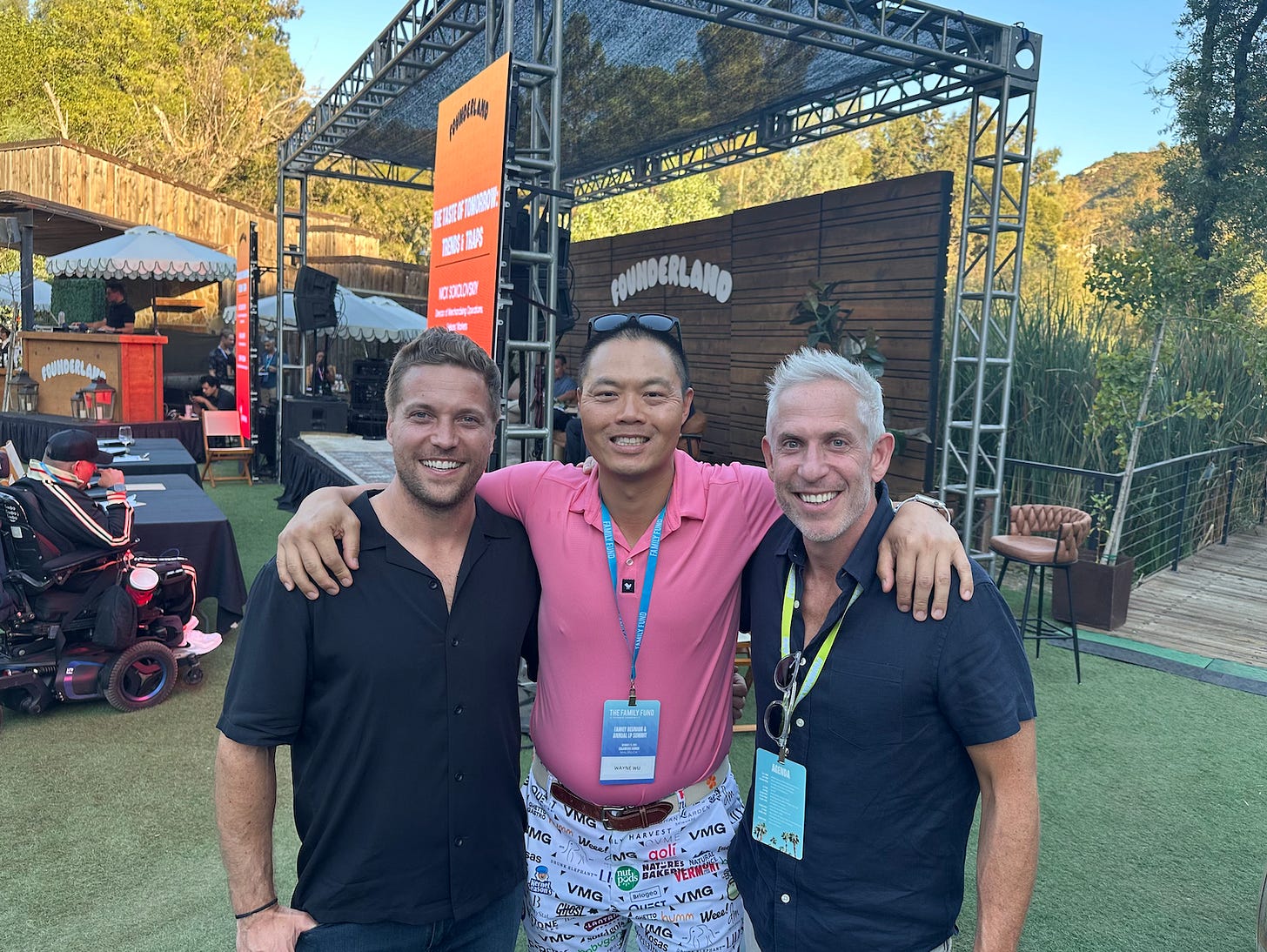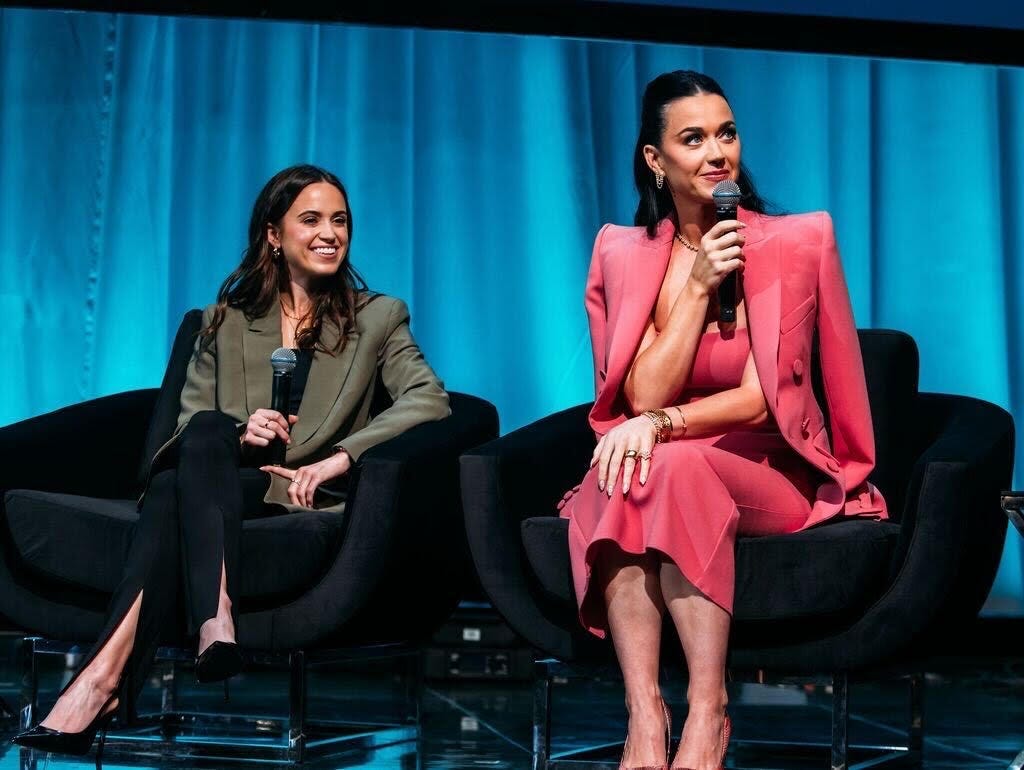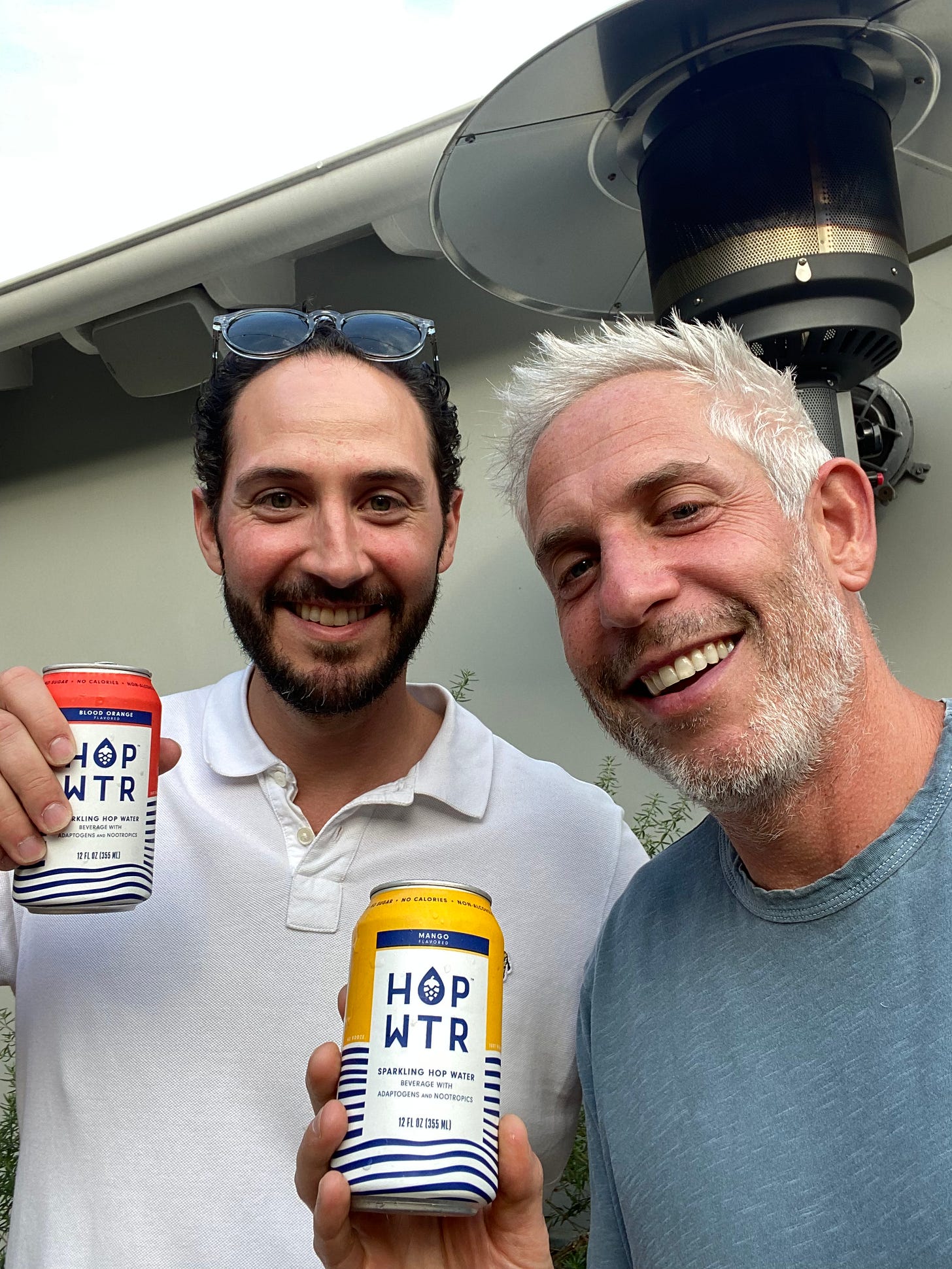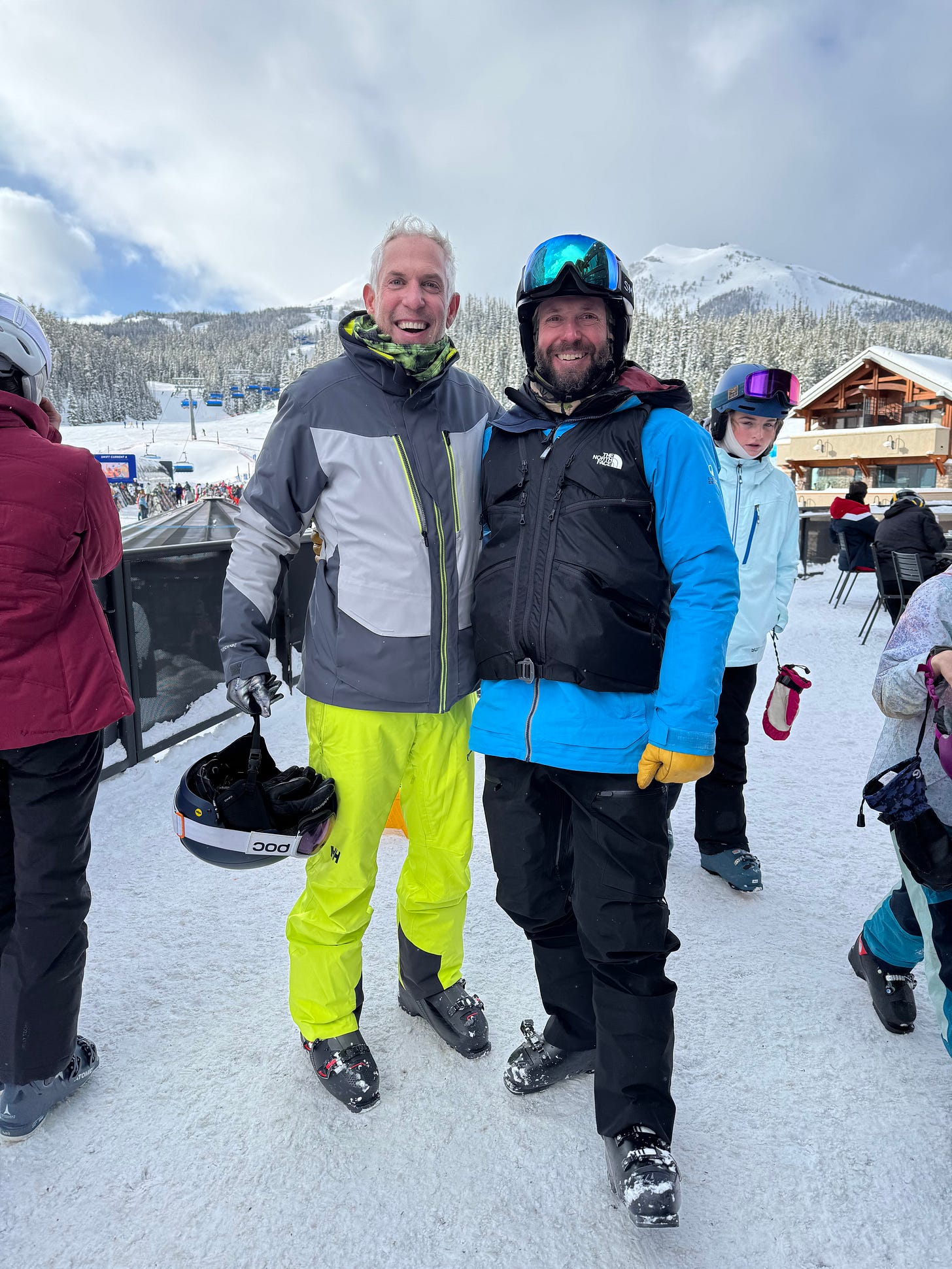Let's make magic.
Stories from founders and leaders I admire, insights from investors, and trends I'm keeping an eye on.
I’ve always believed that everyone has a bit of magic — their unique zones of genius. This newsletter is my way of sharing the moments, insights, and connections that spark that magic. I’ll dive into stories from founders and leaders I admire, insights from investors, and trends that are popping up and rapidly evolving.
At its core, Make Magic is about people — their ideas, their brilliance, and the ways they transform their industries and communities. And ultimately, I hope this newsletter makes you feel connected to insights and people that will inspire your own magic.
Now let’s dive in.
With Dry January in full effect, I spoke to two people who are defining the non-alc space” De Soi CEO Scout Brisson and HOP WTR CEO and cofounder Jordan Bass.
2025 is here, and while the sober-curious movement is nothing new, Dry January is on the mind for many. And nobody knows the non-alc space better than my friends Scout and Jordan.
Before taking on the CEO role at De Soi, Scout, an MIT grad, cofounded better-for-you cookie dough brand, Deux. Now, under her leadership, the De Soi — the brainchild of Katy Perry and Morgan McLachlan — has raised $13 million in funding and has grown to more than 5,000 retail locations, including Target and Sprouts.
Here’s a look at Scout’s magic.
On her confidence in De Soi: I looked at the sober curious movement in 2019 when I worked at M13 and developed a thesis around it. From a business perspective, I was already pretty aware of what kinds of consumer trends were driving the space. And as a consumer, I started trying non-alcs between 2019 and 2021, but a lot of them let me down from a flavor perspective. When I looked at De Soi, the flavors were phenomenal. The brand was phenomenal. And when it came to the opportunity, I looked at the people around the table. There was so much infrastructure already set up. When you have someone like Katy Perry involved, that’s jet fuel in a new category that needs education and brand awareness in a major way, compared to something that’s already established. And they had early-on institutional investors. There was a lot of de-risking happening, relative to what I had seen.
On being a CEO before turning 30: I wear my age like a badge. It's really cool that I can have this opportunity of a lifetime at 29 years old and feel like this is just the start of things. I’m really embracing my youth, hunger and ambition.
On taking risks: When we launched De Soi, I had tried a lot of non-alc products that were posing as a direct proxy to something else, like a non-alc Sauvignon Blanc or a non-alc spirit, and I was always disappointed. I used to pitch people and say vegan mac and cheese is never going to taste like real mac and cheese, so we’re never going to brand our products as drink this instead of this. Our first original flavors were unique and abstract, but then we launched a rosé. We did so much consumer testing before we launched our rosé to make sure we could deliver on consumer expectations. And it blew my mind. Not only was that the right move, but now that’s really where we’re moving as a brand. It way out-performed, but I was really scared to launch that product because of my own experiences as a consumer.
On the future: I want De Soi in so many more restaurants, bars and hotels. There’s so much consumer demand that’s not being met by those on-premise settings. We’ve done a great job cracking where people are shopping for their alcohol or non-alc options. But in settings where people are looking to be part of the toast moment — or whatever it is — I want De Soi to be there.
After spending seven years at The Wonderful Company where he was Head of eCommerce and rapidly scaled the business, Jordan Bass co-founded HOP WTR, a non-alc sparkling hop water crafted with hops and mood-boosting ingredients.
Here’s a look at Jordan’s magic.
On finding a cofounder: Nick and I were buddies before we started the company. We would hang out, and commiserate about how we wanted a non-alc alternative to drink when we were socializing, watching football or unwinding after a hard workout, but we just didn’t see something in the market. We are so lucky that we were friends already, and we were able to forge a business together and develop the idea pretty organically together.
On dividing and conquering with your cofounder: I wanted to be the CEO. It was something I’d wanted to do for a long time. Nick had had the opportunity to be CEO at Plated, so he’d scratched that itch. We had a very clear path from the beginning of what we both wanted, and we obviously talked about it, so it was not contentious at all.
On his superpower: Finding and working with great people is my biggest superpower, and it applies in tough times, too. I rely pretty heavily on the people around me. I want everyone to be shoulder to shoulder, fighting together. And that’s what works best for me. Some leaders get a little insular or won’t share things broadly, but I always believe in being really transparent. If we’re all working with the same set of information, we’re more likely to come up with the best solution for the business.
On creating a new category: You’ve really got to understand the industry, and you have to understand it at multiple levels. You have to understand it at the consumer level, the retailer level and the distributor level – at least in the beverage space. It’s not enough to only understand it at the consumer level, which I think is everybody’s default. You can create a great product for the consumer, but you have three customers.

Getting an investor’s perspective is invaluable.
Investor Insight: I recently caught up with my friend and investor Wayne Wu, General Partner at investment firm VMG Partners. I loved what he had to say, and I have to share it with you.
On a question he’s sick of getting asked: People ask which trends I’m following, and I find it to be very contrary to our approach, which is a community-based model. We want to know every entrepreneur that starts a business in CPG or in branded consumer services, and we want to see where the consumer votes with their wallet.
We didn't become the most active investor over the last 20 years in branded nutritional bars because there was a nutritional bar thesis or a trend we were following. We just met every nutritional bar entrepreneur along the way and found a number of them were doing what they said they were going to do.
The data backed it up, and the additional diligence showed they were serving an unmet need that was different than than other competitors. Many other investors were still stuck at thinking bars were too competitive, and it was almost like a counter trend. Certain investors won't invest in an area because they already have a preconceived notion about a category, but we try to stay very open-minded in that regard.
On what founders should look for in investors: It's no different than dating and marriage. There could be folks with all the right on-paper qualifications or great chemistry over a dinner, but do you really know the root of the person you're partnering with?
It's easier to divorce a spouse than it is to divorce your investor.
People often get caught up in the terms and what their valuation is going to be. Sometimes folks get caught up in the moment and forget they're forming a legal partnership with somebody. It's really about founder alignment. Before we even invest, we want to make sure that there's an aligned set of goals. It's hard enough to build a brand where everybody is rowing the boat in the same direction. If you have one person rowing forward and one rowing backwards, you're going to go around in the circle. That is tremendously important.
On his best advice: Kara Cissell-Roell, the cofounder of VMG, loved to say, “Slow is smooth, and smooth is fast.”
Too many companies try to do too many things too quickly, and they implode. Focus and velocity is really important — not trying to do everything too quickly. There's a right cadence to things. Try to find that right velocity, which isn't trying to do everything, all the time, all at once.
The great entrepreneurs are able to have that level of optimism and hunger, but distill it into which areas move the needle most, and where they should divert their resources accordingly. And then they find the right cadence to to grow an iconic brand and company that they've dreamed of.
⛷️ Something I can’t stop thinking about: I recently had the good fortune of spending a day with Ethan Greaves, who leads ski patrol at one of the most epic mountains and ski resorts in the U.S. Ethan trains, guides, and works with some of the most accomplished founders, thought leaders, and industry icons in the world, and one common theme stood out in our conversation.
The more successful people become in life, the more they value personal experiences that allow them to get off the grid and gain clarity.
Ethan himself has embraced this mindset. He’s now the co-founder of E+Patrol, alongside Matt LeCasse and Lizzie Ackerman LeCasse, the founders of Birch Benders. Together, they’re building something truly special, inspired by the meaningful relationships they’ve cultivated in the mountains, surrounded by fresh air and far away from the madness.
It’s a reminder that success often brings a shift in focus, which can result in fostering connections, building community, and giving back. Going off the grid is a privilege, but it serves a deeper purpose — a chance to reflect, connect, and create with clarity and intention.
This is something worth reflecting on as we think about what truly defines success.




